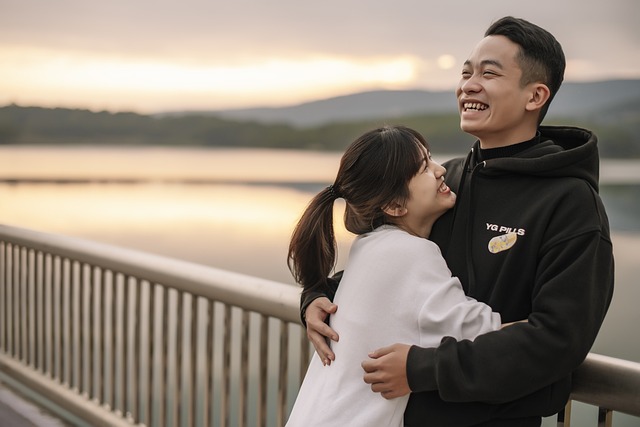Do You Want To Connect With Your Partner?
By Dr. Margaret PaulJune 18, 2012
Most people want connection with their partner. Discover what you might be doing that leads to disconnection.
 Most people want to be connected with someone special in their lives. But if people really want this, why do so many complain of feeling lonely and disconnected from their partner? What needs to happen for them to connect?
Most people want to be connected with someone special in their lives. But if people really want this, why do so many complain of feeling lonely and disconnected from their partner? What needs to happen for them to connect?
Disconnection Happens When…
-
One or both people are focused on controlling and not being controlled, and are protecting against being hurt/rejected/controlled with anger, blame, withdrawal, resistance, compliance, work, alcohol, drugs, TV, food, daydreaming, ruminating, over-talking, people-pleasing, and so on.
-
One or both are coming to the other disconnected from themselves—empty and needy, looking for approval, attention, validation and/or sex. Both are abandoning themselves rather than loving themselves.
-
One or both come to the other to complain and be a victim.
-
One or both people are more intent on being right, or not being wrong, than in being loving.
-
One or both partners are more interested in punishing than connecting.
-
One or both are trying to get love rather than be loving.
-
Each is waiting for the other to initiate time together.
-
One or both are afraid to reach out with physical affection.
-
One or both withhold expressions of caring and support.
-
One or both won't risk speaking their truth to the other.
-
One or both people are willing to lose themselves rather than risk losing the other.
-
Neither partner has done the inner work to cherish their own true soul self, and therefore cannot see their partner's soul essence. They are relating from their wounded self to their partner's wounded self.
-
Neither person has done the inner work necessary to not take the others' behavior personally.
-
One or both partners are not compassionate toward themselves, nor empathetic and compassionate toward each other.
-
One or both doesn't listen to the other.
Connection Happens When...
-
Each person is taking responsibility for their own feelings and needs and comes to their partner full of love to share. Neither comes as a complaining victim.
- Both partners come together connected with themselves.
-
Each person comes to the other open hearted and open to learning about themselves and each other.
-
Each person has their own highest good and their partner's highest good at heart.
-
Each person wants to lovingly connect, more than they want to avoid the pain of being hurt.
-
Each person is willing to risk being honest.
-
Each person is willing to risk being spontaneous with their expressions of love and caring.
-
Each person is willing to risk losing the other, rather than lose themselves.
-
Each person is more interested in loving and connecting than in being right or not being wrong.
-
Both people have done the inner work necessary to not take the other’s behavior personally.
-
Both people cherish their own and their partner's soul self and have learned to be non-reactive to each other's wounded self.
-
Both partners are capable of compassion toward themselves and of empathy and compassion toward and each other.
- Both listen well to each other.
If you want connection with your partner but find yourself often feeling lonely and disconnected, then be honest with yourself: how many of the first list do you identify with?
While you cannot make your partner do the inner work necessary to lovingly connect, there is nothing to stop you from doing the work. You never know what the outcome will be regarding connecting with each other, but what you can count on is that if you continue doing what you've been doing which leads to disconnection, it will certainly not get better and it may get worse. What do you have to lose by becoming a person available for real loving connection?
Heal your relationships with Dr. Margaret’s 30-Day online video relationship course: Wildly, Deeply, Joyously in Love.
Image by Hoàng ?ông Tr?nh Lê from Pixabay
 Send this article to a friend
Send this article to a friend  Print this article
Print this article  Bookmarked 5 time(s)
Bookmarked 5 time(s)
| Related Articles |
|---|
| Time for Connection |
| Relationships and Emotional Connection |
| How to Connect with Others |
Comments
| Author | Comment | Date |
|---|---|---|
| Join the Inner Bonding Community to add your comment to articles and see the comments of others... | ||

Daily Inspiration
Honesty is rarely about words. More often, it is expressed in action than ideas. It is more difficult than truth, Which you can know but not express.
By Dr. Erika Chopich

 Share with Del.icio.us
Share with Del.icio.us Share with Digg
Share with Digg





